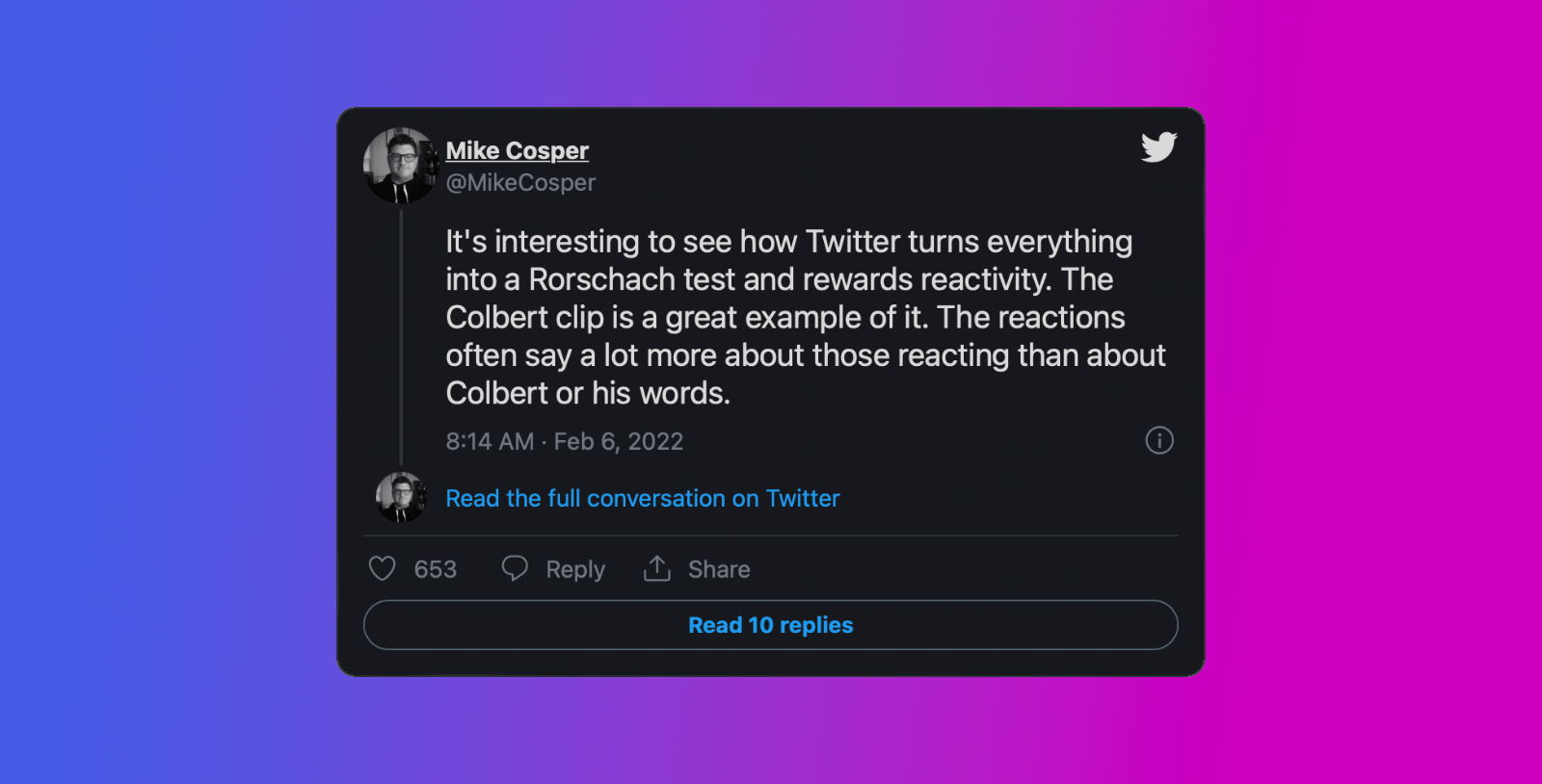The clip of Stephen Colbert expressing some basics about his faith is making the rounds (especially on Twitter). Tim Keller is an evangelical pastor who saw in the clip a potent witness on a popular talk show.
This is a brilliant example of how to be a Christian in the public square. Notice the witness, but in a form the culture can handle. We should desire to have more Christians in these spaces and give them grace as they operate. https://t.co/0QaXuwzYSa
— Timothy Keller (@timkellernyc) February 4, 2022
I guess I shouldn’t be surprised about the negative comments the clip has received, in addition to the praise of popular religious figures, but it’s still disappointing to see them. What Colbert said was obviously not meant to be a full-fledged statement of faith, but rather a snapshot into how faith is integrated into his life. Still, people are commenting about what it left out. They say he didn’t use the opportunity to share the gospel, for example. Commenting on what was left out is like playing gotcha with a tweet, though. You can always find things about a complex religion like Christianity that are left out of a 280 character tweet or a 2-minute sound bit from a talk show. Colbert hosts a mainstream, secular show, not a catechism. It is a beautiful thing that he shared his faith in a way that may actually make people who aren’t Christians curious. His witness being contextualized in a way that secular people can understand doesn’t mean it’s watered down or compromised. It means he is speaking to, and understands, his audience. Kaitlyn Schiess commented on the Holy Post podcast that the kind of fundamentalist thought pattern that opposes contextualization shows, “the poverty of the way we think about evangelism.” She recounted how, when she was a kid, she thought she had to annoy people with her faith to be witnessing properly.
The reason Colbert’s guest, Dua Lipa, asked him about his faith was because people notice that Colbert is open about his beliefs. He isn’t hiding his light under a bushel, as it were. He’s open to talking about the weight of eternity on a late-night show on a major network. How often do you see that?
